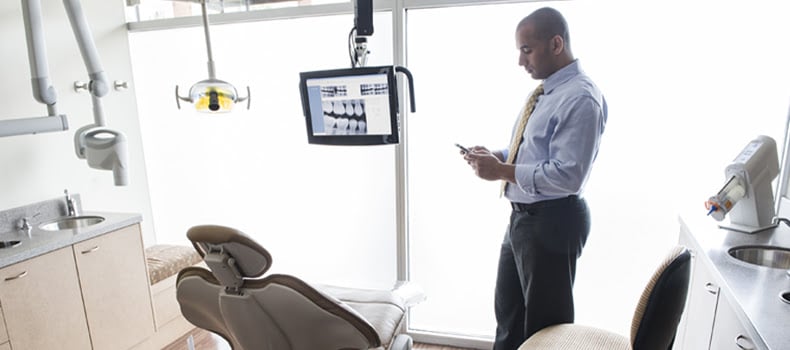Before selling any type of medical practice, several considerations must be taken into account, one of which is corporate purification.
Corporate purification is an accounting process that includes removing or clearing away inactive or irrelevant assets to purify your possessions. As this is something that our clients encounter often, we wanted to examine how this process pertains to dental professionals looking to sell their practice. Getting rid of these assets is one of the first steps for setting your practice for sale.
Why purify your dental professional corporation?
Firstly, by properly planning for the sale of your dental practice, you can see significant tax savings. The most significant is ensuring that the sale qualifies for use of your Lifetime Capital Gains Exemption (LCGE). We explain below a few ways that the LCGE can be advantageous.
When you sell your practice, the gain on sale (the proceeds from the sale less the original purchase price of the practice) is taxed as a capital gain. Half of the capital gain is taxed at your marginal tax rate, which could be as high as 53% in Ontario (as of 2023). For example, a practice sold for $1,500,000 in 2022, originally purchased for $300,000 twenty-five years earlier, would result in taxes owing of almost $400,000. This is where the LCGE can help.
Available since 1985, the LCGE has increased over the years from its original amount of $500,000 to now $971,190 for 2023. In our example above, your taxable gain would be partially sheltered, and the resulting tax liability would be reduced to less than $120,000.
If you're married or have a common-law spouse, the sale can be structured to use your spouse's LCGE as well, eliminating the tax liability altogether. For larger transactions, it's possible to structure the sale to use the LCGE of adult children, too. This requires planning well in advance of a contemplated sale. If done properly, such planning can be extremely beneficial.

Operating through a DPC
Most dentists who own a practice already operate through a Dentistry Professional Corporation (DPC). If you don't own a DPC, it's advisable that you seek out an accountant who is experienced in guiding dentists about incorporation and the proper business structure for the operation, to supplement the eventual sale of the DPC.
A key advantage to operating through a DPC is that you can defer personal tax on the undistributed income of the DPC. You can no longer split the income to the same extent. To qualify for the LCGE, the DPC should be structured as a Small Business Corporation (SBC). SBC is a Canadian Controlled Private Corporation (CCPC) in which all or substantially all of the fair value of the assets are used principally in an active business carried on in Canada. Canadian controlled, in simple terms, means the majority of the controlling shareholders of the DPC must be residents of Canada for tax purposes.
Handling investments in your DPC
Most DPCs in Ontario are CCPCs. Dentistry is an active business, so everything should be in order, right? Perhaps. But what about those investments you've accumulated in your DPC? The investments might be stocks, bonds, rental properties, or even an art collection. None of these, however, can be considered usable in an active business. The Canada Revenue Agency (CRA) and the general tax community agree that all or substantially all means over 90% of the value of the DPC must be used principally (greater than 50%) in an active business to satisfy the requirements for the LCGE. Simply transferring the investments to shareholders will create taxable dividends. That usually isn't the preferred method to purify a DPC.
A properly planned reorganization could be implemented to move the investments to a second corporation. You could also move the dentistry business to a second DPC instead, thus separating active and passive assets into separate corporations. These transactions can almost always be undertaken on a tax-deferred basis, meaning no tax will be payable at the time of purification.

Timing is critical
Unfortunately, this reorganization can't wait to be considered until just before the sale of your practice. There is a holding period test that requires more than 50% of the fair value of the CCPC's assets to be used principally in an active business during all 24 months prior to the sale date. This is in addition to the 90% test at the time of sale (a point-in-time test). That means you must complete the purification more than two years before the practice sale, and you must have a plan in place to make sure it qualifies throughout the 24-month test period.
Additionally, in the unfortunate event that the business owner encounters accidental death, their spouse would be left with the unhappy task of selling the dental practice as quickly as possible. The planning window (24+ months) is not available under this circumstance, meaning the sale is fully taxable if the DPC shares do not qualify for the LCGE. It is more prudent to think about purification now, as a type of life insurance that could save your estate from paying potentially hundreds of thousands of dollars in unnecessary taxes.
There are many more considerations for corporate purification, and BDO's professional services team is experienced in all types of dental practice transactions and can provide the needed support. Contact us to learn more about planning for the sale of your practice.